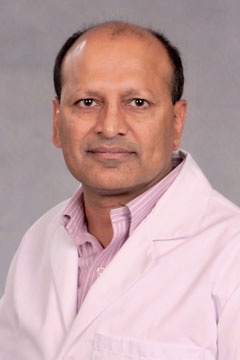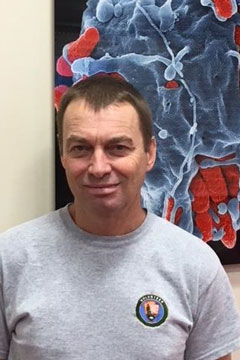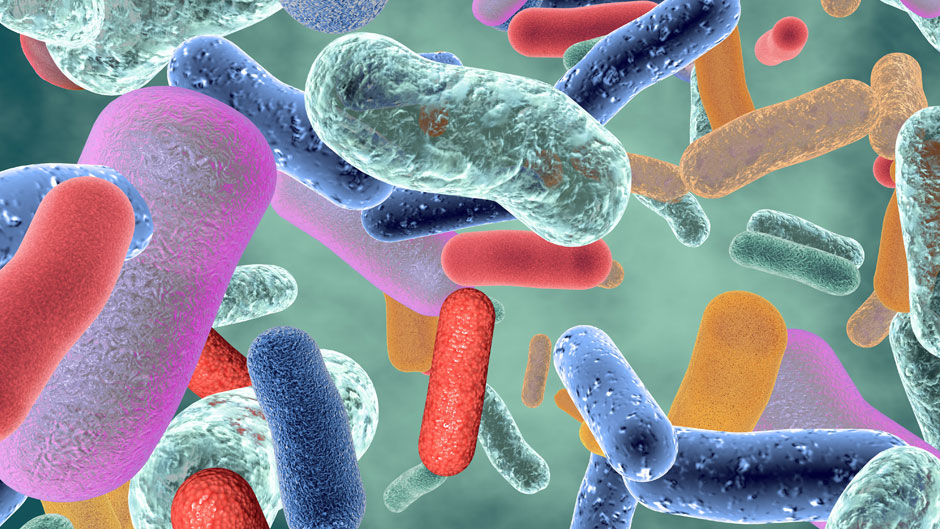When a novel coronavirus began its relentless assault on humans, many people around the world undoubtedly began learning a harsh lesson about their immune system: It requires intensive, lifelong training to recognize and fight off new pathogens.
And maybe some began thinking about how they could help the trillions of bacteria and other invisible organisms that inhabit our bodies—outnumbering our cells by about 3 to 1—improve their immune response and overall health.
But immunology expert Wasif N. Khan and microbe expert Kurt Schesser, both University of Miami faculty members in the Miller School of Medicine’s Department of Microbiology and Immunology, believe that everybody—whether they’re geologists or biologists, artists or archeologists, doctors or nurses—should be well-acquainted with the importance of keeping their immune systems and microbiomes healthy and helping each other. They believe that so fervently that, last year, long before COVID-19 jumped from an animal to a human in China and made its way around the world precisely because no human immune system had been trained to fight it, they won approval to teach a new undergraduate course, Your Health, Your Immune System, Your Microbiota, to both science and non-science majors.

The grades and the reviews are now in for the three-credit course, which turned a world health crisis into the perfect teaching moment that, in retrospect, seems uncannily prescient. About the time the World Health Organization declared the novel coronavirus outbreak a pandemic on March 11—just five days into the University’s spring recess—Khan, professor of microbiology and immunology, revised the course to use COVID-19 as a real-life example of the battles our immune systems continually fight. When students returned to class via online learning on March 26, they were elated about—and empowered by—the change.
A junior from Long Island, New York, Mitchell Hensley initially thought the class would be helpful for the nursing career he plans to pursue. Never did he dream it would help him understand how important the bacteria in his own gut could be to fighting a virus that suddenly locked down and imperiled the world.
“That was kind of shocking to me—how many there are down there and how it affects everything, like your brain function, and how it can be changed by your diet,” Hensley said. “People always talk about eating healthy, but they don’t realize how you can incorporate foods that are good for your gut health and thus your immune system. I was already pretty conscious of eating right, but I don’t really like leafy greens. Now, I force myself to eat them.”
Ruhi Kabra, a senior and neuroscience major, said she was particularly grateful for the timing of the class and its emphasis on sorting fact from fiction. “It was a genuinely wonderful and fortuitous experience,” she said. “There is so much misinformation going around, and it is so difficult to tell what is real and what isn’t and how to keep yourself safe. So, it was great to have scientific information we could easily digest as we watched history unfold,” she added. “It was also so interesting to learn how we’re constantly figuring things out—how much we previously thought we knew turns out to be completely wrong.”

According to Schesser, associate professor of microbiology and immunology, until about 15 years ago, research funds weren’t available to study the microbes that begin colonizing our bodies the moment we’re born because it was assumed they didn’t do anything for us. But, with advances in DNA sequencing and other scientific methods and tools, researchers began to understand that a healthy microbiome—one that has a host who follows a nutritious diet and healthy lifestyle—can help our immune system thwart infectious agents and other maladies including cancer.
“We now know they have a lot to do not just with our everyday health but with the development of our immune systems,” said Schesser, who also co-directs the department’s undergraduate programs. “In essentially the same way that companies like 23andMe can figure out your family relationships going back hundreds of year, we can analyze the microbes in a specific person’s gut and sort of figure out their relationships to the other microbes—and then we can compare that to other people.”
And those comparisons, Khan said, underscore how different—and differently trained—everyone’s immune system is. Just like some people are better at playing chess than tennis, some immune systems are better equipped to fight viruses, while others are better prepared to fight bacteria.
“Our individual microbiome is important for our immune health and everyone’s differs,” Khan said. “A healthy immune system is a result of genetics and a good, healthy microbiome and not all individuals are equal or similar. That makes us differently susceptible or resistant to any disease, including COVID-19.”
Because it was approved and offered rather late, Your Health, Your Immune System, Your Microbiota, drew only seven undergraduates during its pre-COVID-19 debut. But Khan and Schesser—and the students who joined them on a fortuitous journey—have little doubt it will draw a crowd when it’s offered next. Kabra, who hopes to be a gastrointestinal specialist one day, is certain the course will be as popular as the other undergraduate class, Modern Plagues and Society, she took with Schesser her freshman year. It focuses on what he calls “The Big Three”—AIDS, tuberculosis, and malaria.
“But, of course, this fall it will now be billed as the ‘The Big Four’ with the coronaviruses joining the party,” Schesser said.

